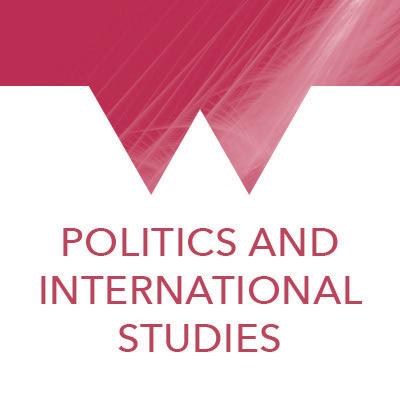PERSPECTIVES





Edition 49 is here! The global stage has transformed massively in the year since we have taken over, and we hope the magazines we have produced reflect this. The focus on Climate is something the team felt would be important, as it is an element that has fallen off the national agenda massively yet the policies being produced are pushing us further towards a catastrophe. We have articles on Britain, South Korea, the US, Thailand with a few of our Deputy Editors (and myself) having the opportunity to write on this very global facing issue.
It has been an incredibly quick turn around this time, for that I must thank our amazing writers who very much showed up for us, delivering amazing pieces early or on time with our very strict deadline. A thank you once again to our deputy editors; Khushi, Evan, Dan, Will and a special shoutout to Alice, who has been juggling the launch of Perspectives Jr which she was instrumental in. Our cartoonists Ben (our front cover illustrator) and Lily have done an amazing job once again, their contributions to our team have truly taken Perspectives to the next level.
This is my last edition as Editor-in-Chief, it has been a lot of hard work, a lot of editing, a lot of Canva, Wix, Whatsapp. But I have loved every minute and I am so proud of everything that Perspectives has achieved.
Coming soon...


Write for us! send articles and ideas to perspectiveseditors@gmail.com AND join our WhatsApp group for first choice of print and online pitches.

Best specialist publication in the midlands







It must always be exhausting rooting for the anti-hero. Indeed whilst Taylor Swift, the phrase’s author, spent pretty much all of 2024 circling the globe on a wave of popularity and surrounded by cheering fans and breaking records, so too did a slightly more unorthodox force — anti-establishment populism.
2024 marked the first year since modern universal suffrage in which every incumbent government lost support. It was also the largest year of democratic action the world has ever seen. For some incumbents, this came with a loss of a majority (such as the ANC in South Africa and BJP in India), and for others this went as far as flirting with political death, such as the Conservative Party in the UK’s 2024 general election. No longer can the victories of the Berlusconis, Trumps and Mileis of the political world be contextualised within situations unique to the countries that they win in. Populism is in. Consensus is out.
The past year demonstrated a world increasingly stretched by geo-political polarities. As the world rattles with the upturn in conflict, trade and politics collide to create newly-forming circles of power. With America becoming increasingly isolated, the political divisions wrought globally by the conflict in the Middle East and the grouping of China/CIS states, it is clear that power, authority and national interest have sprung to the forefront of voters‘ minds.
It would be short-sighted to confine the decline of consensus incumbents to the victory of right-wing populists. In the UK, the left-wing Green Party tripled its vote share amidst Labour’s return to the centre ground of politics. In France, the hastilycreated New Popular Front swept ahead of the far-right RN to a shock electoral victory, consolidating an anti-incumbency and anti-populist left-wing vote. Whether this was a pyrrhic victory remains to be judged.
Moreover, it would be ill-judged to see the success of antiimmigration and socially conservative movements as simply right wing. Many who came within grasping distance of the jaws of victory did so through their ability to build a coalition of disenchantment. Underlying many of these victories (NFP and RN in France, AfD in Germany, Reform UK in Britain) was a sense of bitterness at a perceived violation of the contract between state and citizen. In wielding significant legislative power, many of these parties have taken stances that would be seen as markedly left-wing. In France, the RN refused to support austerity measures that would have ameliorated France’s
ballooning deficit. They chose to bring down the PM instead. In Britain, Reform UK opposed cuts to Winter Fuel Payments. Whilst austerity was the darling of European conservatives during the early 2010s, it has now been summarily rejected by what is perceived as the political right. Yet to suggest that there is a rejection of the orthodox relationship between the people and the state would be misguided. Instead there is a breakdown of trust.
Yet arguably the most threatening lesson from 2024 for the future is the power of information. Whilst X was bought out by Elon Musk in late 2023, its prevalence throughout 2024 cannot be understated. The ability for the interests of a vested elite to control information will prove more dangerous than ever.
This is the most concerning outlook for the future. Whilst Trump’s inauguration was criticised for being decorated with the rich and powerful seemingly out of touch with the people, most concerning was the nature of these individuals’ power.
Sundar Pichai, Jeff Bezos, Mark Zuckerberg and Elon Musk are all extremely wealthy. They also have an overwhelmingly powerful grip on the flow of information. The concept of simply having a stronger argument no-longer may work. Instead, incumbents and the orthodox must learn to weave their agendas into the narratives formed by social media platforms of the masses else they may find themselves out of power again.
Mea culpae of sorts must start to happen, if the governing politicians of today want to win again. In Canada, the resignation of Justin Trudeau has demonstrated the awareness of a political titan that he has run himself out of support. Incumbents such as Macron’s Ensemble and Starmer’s Labour have begun reflecting inwards to gear up for an anti-incumbency challenge, whether they like it or not. They must drop an entitlement to victory and start to acknowledge the very real support for anti-incumbents, stepping out of the sunny glint of victory to examine where things went wrong between the state and the people.
Indeed the incumbency complex is probably best described by those who don’t care much for politics. In the words of someone who was popular in 2024:
“I‘ll stare directly at the sun but never in the mirror / It must be exhausting always rooting for the anti-hero”.
Evan Verpoest; 1st Year, History, London
On the 13th of January, PM Keir Starmer gave a speech on an AI Opportunities Action Plan, setting out an ambitious agenda for the UK to become a world leader in the emerging arena of artificial intelligence. In this plan, he outlined the upcoming attempts to integrate AI into both the public and private sectors of UK life.
To begin with, in his speech Starmer highlighted particular aims he wanted to achieve in a 10-year plan. These aims are based on tech entrepreneur Matt Clifford’s exploration of untapped AI opportunities — an exploration that resulted in a 50-point Plan for Change.
The Plan for Change is one that recommends the implementation of AI in a multitude of ways, which aim to rapidly help growth and boost living standards. For example, using AI to help plan students’ lessons for school, feeding AI into cameras around the country to help spot potholes, reducing jobcentre form-filling and attempting to halve the time that social workers spend on paperwork – with the idea being to allow public sector workers to spend less time on admin and more time delivering the essential services that people rely on.
A key part of the plan is the creation of AI Growth Zones to speed up planning for AI infrastructure. Areas like Culham and Oxfordshire are identified as hubs for this development. The investment will also be seen in the form of a new supercomputer to boost the UK’s computing power, ensuring the infrastructure is robust enough to support these ambitious changes.
Private sector involvement is also a cornerstone of the plan. As part of the AI Action Plan, £14bn and 13,250 new jobs are expected to be committed by leading tech firms, further bolstering the UK’s AI agenda. One key goal is for the UK to be able to produce its own AI models — the technology that underpins many of today’s cutting-edge tools. This would reduce reliance on foreign tech giants and allow the UK to maintain a more competitive edge on the global stage.
However, AI is an energy-intensive technology, with its use of electricity-guzzling data centres posing a significant environmental challenge. As such, any AI-focused growth will need to be accompanied by a broader strategy to mitigate its energy demands, ensuring sustainability in the long run.
In terms of legislation, there are significant proposals surrounding AI and copyright. The plan recommends a revision of the UK’s copyright laws, specifically around text and data
Isabella Cottingham; 1st Year, Politics and International Studies, Hertfordshire
mining. The aim is to make the UK’s framework “at least as competitive” as the EU’s, allowing AI firms to use copyrighted material, provided copyright holders have the ability to opt out. This has sparked concern among campaigners for stronger copyright protection, who argue that this could undermine the rights of creative professionals and publishers.
To bring these plans to fruition, the development of the National Data Library will be pivotal, improving access to data across sectors and helping align the public sector’s adoption of AI.
But how feasible are these intentions?
Much of the AI work within the UK is still fractured, with the newest contributions to the Plan focusing on infrastructure commitments. These are highly dependent on the forthcoming **Long-Term Compute Strategy**, expected in Spring 2025. Delivering the plan will require a cross-governmental effort, as the recommendations are largely based on the ability of the public sector to adopt AI. This means substantial funding will be required for these high-cost, risky ideas, with success anticipated only in the long-term.
Moreover, for this plan to be truly successful, milestones must be defined — indicators that show the UK is advancing toward becoming an AI superpower. This will look different to both the US and the EU’s approaches, given the UK’s particular goals and legislation. Although the plan does outline the vision of automating tasks, improving healthcare, and enhancing public services, clearer progress indicators would help assess whether the UK is on track to lead globally in AI.
Given the rapid pace of AI development, leading in this field is a dynamic and evolving challenge. As such, the criteria for AI growth and adoption must remain flexible to accommodate ongoing technological advancements. The commitments outlined in the Action Plan may need to adapt as both the industry and the world continue to shift, but they mark a crucial first step in establishing the UK as a global AI leader.
references:
https://oxfordinsights.com/insights/tracking-progress-on-the-uks-aiopportunities-action-plan-implementation-is-what-counts-for-growth/ https://oxfordinsights.com/insights/ai-in-the-uk-are-we-ready-willingand-able/

The seating plan at the inauguration of America’s 47th President was nothing short of breathtaking. Billionaire tech moguls sat in front of Trump’s cabinet picks. The big names included Mark Zuckerberg, Jeff Bezos, Tim Cook and Dana White. The sphere of influence around the President is clear, those with monetary influence come first, those with political influence come second. Trump isn’t just keeping these figures at arms length, Musk and Ravaswamy have been brought to the centre of government in the form of their own commission, the ‘department of government efficiency’ (DOGE, a nod to the crypto currency), aiming to cut the spending of government and find waste.
An oligarchy is a term used to refer to the super wealthy with great political influence usually in Eastern Europe. The term has now found its way to the US. Joe Biden, in his closing address, rather ominously warned of such a threat to America, “extreme wealth, power and influence that threatens our entire democracy, our basic rights and freedom, and a fair shot for everyone to get ahead”.
The state of inequality in America is one that lends itself to this system. The ultra-richest segments of the US control a greater proportion of wealth than in the gilded age, the richest 1% possess 90% of the wealth in America. One analysis of wealth inequality among countries found that the US was more comparable to Africa, which, along with Latin America, was one of the regions with highest wealth inequality globally. With the wealth they have amassed, the US politicians have no choice but to embrace them, or fail to get elected.
Because of the Citizens United decision, the ultra-wealthy can essentially donate unlimited funds to political campaigns in the name of freedom. Both campaigns have benefitted from this, but it has led to policy being skewed towards the rich. In Trump‘s first term, he delivered more than $1 trillion in handouts to the ultra-wealthy and huge corporations. With $1.9 billion spent on election campaigns from 150 billionaires, even without Musk, the cabinet would be the richest in history. Money is clearly already in control of US politics.
There are concerns developing about media censorship in America, as those in the speculated oligarchy are the leaders of various tech platforms. Zuckerberg (who owns meta) and Musk (who owns X) wield immense power over algorithms, which pushes certain narratives into the American psyche. Some are already complaining of being unfollowed from left wing figure heads or not seeing news stories of global protests against facism. The TikTok CEO Shou Zi Chew was in attendance at the inauguration, it is speculated however that Musk may be intending on buying the deeply influential platform, or Zuckerberg. Those trusting social media as their sole source of political news is constantly rising, knowing those figures will have complete control over what is pushed and censored is deeply concerning for freedom of speech.
Some warning signs the American public should watch out for include a massive upwards redistribution of wealth, tax breaks for the most wealthy and privatisation of public services. Following this, the handing out contracts to companies closely linked to government officials. Problems will develop in the slashing of rules and regulations that protect ordinary people from excessive corporate and monopoly power. Bodies like the Federal Trade Commision and Consumer Financial Protection Bureau must persevere to hold these corporations to account, but there are already concerning signs Trump aims to weaken these agencies.
Things feel dire for the people of the US, can they ever return to a fully democratic system?
In Athens during the late fifth century, there was a short time that saw two oligarchic coups d’etat. The second oligarchy was helmed by a cohort that became known as the “Thirty Tyrants”. They were not successful and were overthrown after a short rule. The Athenians gave amnesty to most of the oligarchs and subsequently returned to democracy which was “very stable” for nearly 100 years. History tells us healing is possible, hopefully America has the chance to reclaim its democracy before it’s too late.
With 2024 being the hottest year on record facing severe weather across the globe, two questions spring to mind…what are we doing wrong? What issues are now defining the politics of climate change in a time where change is both difficult and necessary to imagine?
The unwavering, competitive pursuit of economic growth has led to a trade-off between the environment and the economy. Growing financial globalisation has encouraged and spread ideas, which reinforce relentless pursuit of prosperity with poor environmental consequences. Spread of ideas such as consumerism and short-term thinking feed populist economic agendas, increasing the presence of vicious cycles across the globe. These endless cycles characterising attitudes and social norms are having disastrous effects on the world’s climate. The damaging politicisation of climate change within political debate has long been plagued with a continuous array of empty promises of policy and action. With the growth of polarisation and subsequent political apathy, it comes as no surprise that the lack of bipartisanship, cooperation or action seen normally in political systems is likewise defining climate response. Yet, this lack of motivation to implement climate reforms has led to growing fear, and understanding, that no country is truly doing enough in a system shaped around reaching economic milestones.
Despite consensus surrounding the need for sustainability, there are consistent, conflicting interests which dictate climate politics. Our current economic climate allows hegemonic forces; the ‘leading’ developed countries, multinational corporations or influential elites, to play a significant role in shaping the politics of transition necessary for climate action. These determining forces can either facilitate or hinder necessary global efforts to address climate change, often depending on their own selfinterests and actions.
In recent years, these have been hindering effects often exaggerated by these forces who inherently dictate the environmental agenda. Their ability to drive a fear of change and eco anxiety within our society, as well as fundamental links between climate change and inequalities, allows a lack of accountability against those most responsible for climate change. Climate change plainly has disproportionate effects. The UN states that in the last 50 years, more than 91 percent of deaths caused by climate and weatherrelated disasters occurred in the global South. Countries in this location are often taken advantage of in modern day exploitation,
mainly by these hegemonic players. As more staggering statistics like this are shining a light on the flawed system we live in, it poses the debate of a lack of accountability and the reinforcing cycle supporting global dominant forces. At the very heart of the global resource use struggle remains a reinforcing nature of fundamental inequalities, which have firm links with climate change, with low-income countries consuming six times less material than developed countries. This all underlines the truth behind David Attenborough’s statement “today those who have done the least to cause this problem are being the hardest hit”. Yet, those who have the capacity to instigate this change are those with most vested interest in maintaining the status quo. These forces retain political and economic power allowing them to utilise their authority to align climate policies – or lack thereof – to reflect their interests. These forces have been titled as the ‘polluter elite’, seen as having a disproportionate amount of influence on the climate in a widespread amount of ways. We see this particularly with the ‘polluter elite’ gaining leadership positions, often to fuel their own self beliefs. This pollutes the political action, hindering any environmental progress once more demonstrating the subsequent effects of the politicisation of environmental debate.
History is often dictated by these successful elites, and this seems to be the case with our future too. Given the importance of the next few years in shaping our ability to overcome this global challenge, it remains an unsure future when polluting elites and climate sceptics are given unparalleled positions of power. This is most readily identified within the polarising spectrum of US Politics; a global leader forming a regrettable role model for sustainable change.
A series of alarm bells have been unheard in American Politics. Americans have been living through summer after summer of climate impacts, with disastrous wildfires and extreme weather cases becoming more and more frequent. Yet as these events become more frequent, damaging climate denial and polarised views have likewise grown. This begs the query as to whether the USA’s title of being a global leader in guiding environmental policies is just.
A sense of déjà vu spread across the globe with Trump’s reentrance into the White House earlier this month. His leadership is once more expected to set America back on any environmental development. These concerns were evidently justified given the
‘national energy emergency’ that was declared by the President followed by a frightening display of no remorse with a statement of “drill, baby drill”. The consequences of the politicisation of climate change are reflected in the divided nature of US politics. The stagnant environmental debates implicating our future. The intensifying escalation of polarisation has led to further loss of bipartisanship and compromise necessary for national, let alone global, cooperation. This ultimately resulted in inaction defining US politics to be mirrored in the global climate debate. The President’s more than apparent distaste for climate action with language referring to global warming as a “scam” or “hoax” is fundamentally altering the social attitudes within America as a whole. His administration‘s war on climate change will have consequences across the globe, with the extreme weather now threatening worldwide events. A new global leader of climate policy will have to be found.
An unsurprising yet discouraging decision immediately showed a repeat of the 2017 decision to leave the Paris Agreement. Although paralysis is common in American politics, presenting a potential halt or pause to Trump’s agenda, just his first day of his slashing of climate policies demonstrates the far-reaching consequences of the decisive next five years. We witnessed the gap in international leadership and credibility with the four-year absence of America within the global climate political stage, and we are about to witness it again, yet the question remains if the impacts will be more drastic during the ‘critical decade’. However, in a movement away from the once united climate politics within America and the wider world, the advancement of climate scepticism can be seen to be hitting closer to home. US climate denial groups have been revealed to be creating close political alliances with several European far-right parties. Considering the interconnected nature of politics in the progress of globalisation, it seems almost predictable that a pattern of climate deniers has spread, with a lack of action influencing not just American politics but the world as a whole.
When taking an overall outlook at climate action, it is very easy to put the blame on a select few, such as the countries outside of the legally binding Paris Agreement. Yet it is this blame game which has fundamentally shaped the tiring, repetitive cycle of empty promises. Even countries within the binding Paris Agreement have not done enough with critiques of insufficient targets, environmental injustice and more importantly, the hegemonic forces dictating the agenda. Dominant countries and fossil fuel industry influence has resulted in climate scientists feeling
discontent towards the tailored promises. Despite it remaining a crucial agreement highlighting the achievable idea of global cooperation, it is often dictated by the few and ultimately highlights the issues that are preventing the necessary global solution to a problem being felt in every corner of the world. The limitations of the Paris Agreement can be seen within the UK itself given the pressure of growth, leading to decisions such as the governmental backing of an additional runway in Heathrow.
However, all in all, while the Paris Agreement and the countries involved have its fair share of flaws, it‘s still a big step in the right direction for global climate action. The voluntary commitments and lack of strict enforcement might be frustrating, but it‘s a start. A refocus of perspective on climate action amidst a world being led astray is necessary and achievable. With climate activists and opposing parties shedding light on what can be achieved in the near future, it is clear more can and will be done. Activism is proving vital in these necessary next steps through pushing for policies and forming international coalitions to overcome boundaries. Supranational organisations provide favourable examples to follow, removing borders from global political problems which need transnational solutions.
Although the USA’s withdrawal from the Paris Agreement is a very real setback in a global system weary of change, the world‘s battle with climate change is far from over. The agreement proves that international teamwork is possible against the odds of economic, nostalgia driven politics. Now more than ever, unity proves necessary to commit to securing a future for our planet.
On the 20th of January 2025, Donald J Trump dramatically returned as the 47th President of the United States. Since his 2020 loss, he has faced legal action, unprecedented international opposition and two assassination attempts. Now that he has pulled off the political comeback of the century, the question on everybody’s mind is, what will he do next? The first 100 days of his presidency may give us an idea of how he plans to shape the rest of his term.
The president hails his election as the dawn of a new American, “Golden Age”. To usher in an era of prosperity, Trump plans to cut government spending, reduce taxation, and deregulate industry. He wishes to cut the corporate tax rates and eliminate taxes on corporations‘ foreign profits to create jobs and increase shareholder dividends. Trump has also promised to create a 10% tax cut on middle - income earners and has floated the abolition of income tax altogether. These moves have been criticised as tax cut for the rich, risking inequality, and increasing the national debt, whilst conservatives have hailed the plans as a method of boosting economic growth. Aside from tariffs, to afford the tax reform, the administration plans to gut welfare programs such as Medicare, Medicaid and Social Security. Trump, along with the newly formed Department of Government Efficiency, (DOGE) has begun a program of, as some describe, “purging” bureaucracy. He has fired high-level officials and offered severance packages to government workers, most of whom have historically opposed him. Whilst this will help balance the budget, critics say it could erode democracy as Trump removes opposition.
Trump’s foreign policy promises “America First”. His grandiose policies will require strategic application of diplomacy and pressure. Trump has floated many foreign policy promises, such as 5% of GDP on defence spending from Nato members, ending Ukraine and Gaza Wars, and expanding territory into Canada, Greenland and Panama. His brash brand of diplomacy may alienate allies and create opportunities for China and Russia to forge new relationships.
The president has been successful so far in bullying smaller nations, Colombia yielded on US military deportation flights following threats of a trade war. However, his influence over larger states is yet to be seen. Trump has placed a 25% levy on Canadian and Mexican imports and a 10% tariff on Chinese goods, promising further tariffs on the EU. In turn, these countries have promised retaliatory actions.
Economists predict an increase in the prices of goods; however, Trump deems the effects “worth it”. His administration may ease tariffs as a negotiating chip to achieve long-term foreign policy pledges; he has leveraged a month implementation delay in return for additional border troops. Despite this, Trump may struggle to deliver on larger promises. As Europe recovers from
Jack Keen; 1st Year, Politics and International Studies
a recession, advancing defence spending may be a hard sell. Likewise, taking control of new territory or ending wars will be challenging without military force, especially where allied nations such as Denmark and Canada see little reason to give up strategic territory. Trump‘s duality: reduced US international presence whilst also taking major territorial gains and diplomatic actions, makes an unclear picture of overall foreign policy goals. In his first weeks in office, he has had a confrontational and impulsive style of diplomacy, which will likely continue.
President Trump has signed isolationist executive orders. Two withdrew the USA from the World Health Organisation and the Paris Climate Agreement, threatening US health and exacerbating the international climate crisis, as the US removes regulations. Likewise, his mantra “Drill Baby Drill” does not fill environmentalists with hope.
US geopolitical dominance will wain in the Trump era as $60 billion of foreign aid is axed. The cut could destabilise Latin America and Africa, increasing dependence on China and Russia.
The new administration has also enacted conservative social policies, such as ending diversity programs, banning transgender soldiers, and halting gender-affirming care. These executive actions could harm and discriminate against some of the most vulnerable members of the population.
Since assuming office, Trump has announced a flurry of orders to carry out, “the largest deportation operation in history.” These executive actions have permitted new powers, allowing military aircraft to deport migrants, deploying the army to the border, empowering federal agents to expedite deportations anywhere in the US, and halting the entry of all undocumented migrants. Some executive orders are being battled in court. Nevertheless, they threaten to affect the lives of millions of immigrants, potentially causing a humanitarian crisis as gangs exploit detention centres where disease is rapidly spreading. Trump has asserted his plans will halt, “illegal migrants and flow of fentanyl”. Most economists challenge this notion and argue that it will harm the economy and barely curb drug distribution.
The first 100 days of his presidency shall set the path for the next 4 years. To date, Trump has followed an unpredictable, radical and populist leadership method. His policies have been indiscriminate, both domestically and internationally. There is hope that some of his ideas may work, and a “Golden Age” may very well be ushered forth, but at what cost, and for whom? Whether this era is remembered as a revival or a reckoning remains to be seen, though many fear it is the latter.
After 15 months of brutal and incomprehensible violence, a ceasefire in Gaza was officially announced on January 15. Whilst the release of hostages and humanitarian aid bring desperately overdue relief, the ceasefire marks only the beginning of the process to secure peace and raises an urgent question– what comes next?
A ceasefire is, by definition, temporary. Although plans for rebuilding Gaza have emerged from multiple wings, questions on governance, funding, resettlement, and security loom large. Bricks will clearly not be enough to reconstruct Gaza; the deeprooted political, economic and humanitarian crises require long-term planning and political reorganisation to secure lasting peace. As Trump floats plans to “take over the Gaza Strip”, Netanyahu’s coalition splits over debates on a complete withdrawal from Gaza, and Palestinians seek to return home, rebuilding Gaza is set to become one of the most complex and politically charged post-war efforts in recent history.
America’s position adds another layer of complexity. Having previously kept his position relatively closed, Donald Trump has doubled down on his plan where “the Gaza Strip would be turned over to the United States by Israel at the conclusion of fighting”. This would entail displacing Palestinians to “far safer and more beautiful communities... in the region”– a thinly veiled plan to force Palestinians out of their homes, for many a second time. This would not only reinforce the suffering families have endured, but cement the death of Palestinian statehood, likely leading to Israeli sovereignty over the West Bank. Arab countries have clearly and swiftly rebuked this plan, aiming to preserve a two-state solution and protect their regimes from instability.
Whilst analysts deem this scenario unlikely, Trump’s proposal has prompted condemnation from institutions like the UN, warning against the progression to ethnic cleansing. Under pressure from Arab states, human rights groups, the UN and international authorities, it is unlikely that any of this would be possible. However, America’s backing furthers a dangerous and frankly irresponsible precedent for Gaza’s future– apparently ignoring all calls for humanitarianism, justice or global stability.
The displacement of Palestinians and lack of housing is a monumental issue in Gaza’s rebuilding. Over 50% of the region’s agricultural land has been harmed by conflict, and according to the UN, 69% of Gaza’s pre-war infrastructure has been damaged. The UN Development Programme estimates that development
Khushi
Goahit-Hariri; 1st Year, History and Politics, Colchester
in Gaza has been set back by 69 years, with water and sanitation systems almost completely decimated. This means it will take decades of sustained effort to reconstruct Gaza and restore systems providing basic needs. Whilst some use this to justify the expulsion of Palestinians from the area, others have suggested utilising mobile shelters (an idea used during the Syrian civil war) which allowed people to move around and sustain communities. However, any such solution would depend heavily upon foreign aid, which could entail political conditions detracting from the extreme humanitarian crisis at hand.
Given America’s recent withdrawal from international aid and its former status as one of the largest donors globally, Gaza is likely to suffer from this loss as other entities struggle to fill the gap. The most likely scenario would be reconstruction heavily involving Arab countries and facilitated by UN programmes, dependent on complex international agreements. Questions around Palestinian authorities complicate matters– many governments will refuse to deal with Hamas whilst the Palestinian Authority may seek a clearer role despite lacking support. This brings to light the intensely political dimension to reconstructing Gaza and the issue of governance which is avoided in the current ceasefire plans and if not tackled with clarity, could lead to hostilities rapidly resuming. If a two-state solution is to be secured, it is important that political differences between the West Bank and Gaza are firstly resolved and secondly lead to transparent and legitimate governance. At its heart, reconstruction is a question of political stability as much as replacing broken buildings and without a clear plan for governance, we are simply waiting for the next inevitable conflict.
Meanwhile, Benjamin Netanyahu faces a political conundrum–having performed poorly in the polls since October 7, his career’s survival depends on postponing the end of the war to justify his coalition’s rule– however, this would mean risking American support. Trump’s priorities in the Middle East require stability but if Netanyahu prioritises his political survival, we could see phase one dragged out and negotiations on subsequent phases postponed or complicated. If this is the case, delayed reconstruction would cruelly prolong the devastating humanitarian and infrastructural issues currently inflicted on Gaza.
Whilst the ceasefire holds and attention turns to future negotiations as well as the rebuilding of Gaza, the searing question of Gaza’s sovereignty remains. Whilst humanitarian needs must be prioritised, the political reality must be recognised, without which reconstruction will be as fragile as the ceasefire itself.

Nour Hegazy; 2nd Year, PPE, Egypt
Will the rebels’ thunderous victory herald a coming storm?
“There are decades where nothing happens; and there are weeks where decades happen.” Seldom has Lenin’s apocryphal quote rang truer than in Syria last December.
Following a lightning offensive lasting less than two weeks, the HTS (Hay’at Tahrir al-Sham – the Organization for the Liberation of the Levant) stormed out of their besieged enclave in the northwestern Idlib province south to the capital Damascus, from which President Bashar Al-Assad reconquered most of Syria since the civil war began in 2011. Key cities were captured with minimal resistance, and Assad’s allies, Hezbollah, Iran, and Russia, distracted with their own conflicts, could not aid him. Assad’s ruthless dominance over Syria, only recently seen as a fait accompli, disintegrated almost overnight. Damascus finally fell on December 8, ending the Assad dynasty’s 50-yearlong authoritarian reign, its disgraced leader fleeing into exile. Yet even as Syrians celebrate, peace may prove as fragile as the government that crushed it 11 years ago.
Syria remains deeply fragmented. The HTS, a formerly al-Qaedaaffiliated Islamist, Sunni Arab coalition, replaces a regime that relied on minority backing primarily from Shia Alawites, the Assads being Alawites themselves. The HTS also does not control all Syrian territory: their main domestic challenger is the SDF (Syrian Democratic Forces), which controls the northeastern third of the country. A secular, socialist, and Kurdish-dominated coalition, the SDF retook control of the majority-Arab northeast from the Islamic State, capturing thousands of IS troops and earning US backing. Unaligned with both Assad and his opposition, they consolidated their territory into a self-governing region, and host about 2000 US troops tasked with preventing an IS resurgence. Since the IS’ fall, they’ve focused on repelling Turkish-backed proxies like the Syrian National Army (SNA) and expanded into central Syria following Assad’s collapse.
Therefore, the main rift between the two Syrian powers is the HTS’ main backer, Turkey. Turkey considers the SDF to be the Syrian wing of the Kurdish insurgency in the east of the country and vehemently opposes the SDF maintaining de facto independence. With the SDF’s main backer, the US, growing more isolationist under President Trump – who was reluctant to protect the SDF even in his first term – the Kurds are in a precarious position. Yet Turkey can’t just steamroll into SDF territory, as the militia holds 50,000 IS captives. The IS, while defeated, isn’t extinct, and still attacks SDF prisons to recover its captured soldiers. An SDF collapse would create a power vacuum the IS would undoubtedly exploit, necessitating a diplomatic resolution.
Despite some SDF territorial losses to the HTS and Turkish proxies, an uneasy detente exists as negotiations ensue. The HTS has become the new Syrian government in Damascus, with its leader, Ahmed Al-Sharaa, announced as Syria’s interim president. Al-Sharaa has distanced himself from his al-Qaedaaffiliated past, moderating the HTS’ rhetoric and declaring his commitment to pluralism and religious and ethnic tolerance. The Syrian government also repealed the Assad-era constitution and intends to absorb all armed groups into the defence ministry. The SDF, however, hasn’t joined the fold.
Welcoming Assad’s fall, the SDF support Al-Sharaa’s pledges for pluralism and call for a decentralised, secular, and democratic Syria, while stressing that the Kurds only want autonomy, not independence. While agreeing in principle to eventually dissolve the SDF, its commander Mazloum Abdi demands that it be integrated into the defense ministry’s leadership. However, Abdi claimed his faction wasn’t invited to the proceedings where AlSharaa was declared president. Nonetheless, he maintains that he recently met Al-Sharaa and that negotiations are underway.
Hence, the HTS’ commitment to pluralism must be sincere, while the SDF must demilitarise so the country can finally reunite. A united government is critical for restoring internal order, particularly in preventing sectarian violence as Alawites are attacked for their historical support of Assad, rebuilding state institutions, and suppressing extremists. Syria also must stand united against external threats, as Russia seeks to keep its Syrian bases and Israel plans to occupy the Syrian territories it invaded after Assad’s fall “indefinitely”.
Democratic progress and demilitarisation also can free Syria’s economy from the albatross of Western and Arab sanctions. While sceptical of HTS’ intentions, EU states have declared their willingness to ease sanctions provided that Damascus honours its democratic commitments, seeing a stable, wealthier Syria as potentially stemming illegal Syrian migration and welcoming back its long-displaced refugees. The US issued a 6-month license easing Syrian government transactions, hoping Syria continues to freeze relations with Iran. The Saudi foreign minister went further in his visit to Damascus, calling on the international community to lift sanctions entirely.
For now, the new president sings a conciliatory tune to reassure a sceptical international and domestic audience. Time will tell whether he keeps his lofty promises in a country with such a bloody past. The decisions of the weeks ahead may well shape Syria’s future for decades to come.
The Putin-backed, ultra-right, anti-EU Georgian Dream Party achieved a victory in the 2024 Georgian parliamentary election, leading to former Manchester City footballer and equally rightwing and controversial Mikheil Kavelashvili set to become the country’s president. This means that the right wing in Georgia will now control the prime ministerial position, as well as the presidential position. Yet, Georgians are fiercely protesting the party and its anti-Western rhetoric and ties to the Kremlin, with former president Salome Zourabichvili claiming Russian electoral fraud and stating that she was the “only legitimate” president. So, what’s next for Georgia and its relationship with the EU under the lead of such an anti-EU and pro-Russia president?
Georgia is a parliamentary democracy with the President as the head of state and the Prime Minister as the head of Parliament. In October last year, Georgia held the parliamentary elections, in which the Georgian Dream party supposedly won a majority with 53.9% of the vote. The party has become increasingly authoritarian and edging closer to Kremlin and Russian-style positions, such as the passage of laws that target media groups who receive foreign funding, as well as attacking the LGBT community. Georgian Dream also refused to join Western sanctions on Russia after their full-scale invasion in Ukraine, and, in November, the government announced that it was putting EU membership negotiations on hold until 2028.
This move sparked 17-day long riots from Georgian citizens, involving tear gas, fireworks, and arrests, as Georgians have long been promised a path to EU ascension, and a recent poll found that support for joining the EU is 79% among the population. Under President Biden’s administration, the United States imposed sanctions in December on Georgia’s former Prime Minister and billionaire Georgian Dream founder Bidzina Ivanishvili, indicating just how anti-west the party is becoming.
The party’s success in the elections and subsequent parliamentary majority allowed it to exert significant influence over the election of the President in December, as the Georgian Electoral College is composed of Electoral College votes from parliamentary MPs. As a result, former Georgian Dream MP Mikheil Kavelashvili was elected as President, and was inaugurated on 29th of December 2024. After his stint as an MP for Georgian Dream, Kavelashvili became the founder of the People‘s Power party, known for being the main voice for anti-Western propaganda in Georgia.
However, there have been numerous claims of the October parliamentary election being fraudulent, thus questioning the validity of President Kavelashvili being selected as President by Parliament. Multiple observer groups, including the 57-nation
Organisation for Security and Cooperation in Europe, have posited that election-rigging tactics such as ballot stuffing, voter intimidation, and bribery could have swayed the election in favour of Georgian Dream. There have also been accusations of the party buying votes and taking advantage of the country’s 302,000 state employees.
These claims of electoral fraud must have some degree of merit, as a resolution adopted by the EU Parliament in November suggested holding Georgian elections under international supervision. While it is claimed that Georgian Dream achieved 53.9% of the vote, one exit poll by HarrisX claimed discrepancies of approximately 8%, and two US pollsters, albeit commissioned by the opposition, have said the result of the parliamentary elections is statistically impossible. These factors clearly render the election of Kavelashvili as President by Parliament illegitimate. Former pro-EU and anti-Russia President Salome Zurabishvili asked the constitutional court to annul the results of the parliamentary election over “widespread violations of voting universality and ballot secrecy”.
Yet Kavelashvili was inaugurated at the end of last year, meaning the beginning of a controversial and tumultuous anti-Western presidency is inevitable, with strained relationships with current European allies.
Tensions also look to be high domestically, as Georgians are protesting daily against the President’s anti-EU stance specifically. At the start of February, two opposition leaders were arrested at an anti-government, pro-EU protest. Daily protests are a striking example of a government, in this case supposedly illegitimate, who are extremely at odds with the will of its citizens. This could be seen as a threat to the longevity of Kavelashvili’s presidency, yet will Georgian Dream find ways to bypass its unpopularity and continue to alienate Georgia from EU ascension while strengthening ties with Russia?
Evie Whitmarsh-Knight; 1st Year Politics and International Studies, Northamptonshire
A wave of violence has swept across Mozambique since the controversial election of the new President Daniel Chapo in October 2024.
Mr Chapo was inaugurated this January, sparking new waves of protests. A relatively unknown provincial governor before the election, he was the candidate fielded by the FRELIMO party, which has governed Mozambique since independence in 1975. His main opponent, in a campaign marred by controversy, was Venancio Mondlane. The country is facing a housing crisis, high unemployment, inequality, and poor living conditions. As the memory of a 10-year independence war fades, young people’s loyalty to the Marxist-Leninist party that won freedom is weakening.
Mr Mondlane rallied support on social media platforms following the election on October 9, which an EU mission stated contained “unjustified alteration of election results”. Opponents’ campaigns were disrupted, and voter registration was made difficult. Chapo was initially declared to have received 71% of the vote by the electoral commission, but this has since been declared incorrect and was changed to 65% by the constitutional court. This has resulted in mass protests in which the official death count is 96, but civil society group Plataforma Decide alleges at least 310 deaths and over 4000 illegal arrests have occurred since October. Mondlane returned from exile in mid-January, declaring the country to have “two presidents” and promising to “paralyse” the new government. The country is no stranger to armed conflict and is still troubled by the legacy of a 16-year civil war between FRELIMO and opposition party RENAMO (of which Mondlane was formerly a member).
Mondlane’s popularity with the youth fits into a broader trend of young voters ditching independence-era parties in southern Africa, following South Africa and Botswana’s rejection of long-standing ruling parties in elections in 2024. Mozambique’s median age is just 17, which suggests that FRELIMO’s days are numbered once young people become of age to vote, despite Chapo’s victory now.
Gen Z is a glimmer of hope for Mozambique. As one could expect from a complacent government which has been in power for 45 years, the FRELIMO government has become extremely corrupt. Mozambique’s long coastline and struggling governance have led to it becoming a global hub for the drug trade. At $600-800 million a year, heroin is estimated by some to be Mozambique’s biggest export. Furthermore, illegal smuggling of ivory, fish, rubies and timber is rampant. It is estimated that corruption has cost nearly
$5 billion between 2002 and 2014. Manuel Chang, Mozambique’s former finance minister, received at least $7 million from a UAE shipbuilder in return for $3.1 billion in government loans, a whopping 15% of the country’s GDP.
These issues have been exacerbated by an ISIS-affiliated insurgency that broke out in the north of the country in 2017. Despite reports of beheadings, mass displacement and captures of strategic villages and ports, previous FRELIMO President Filipe Nyusi remained in denial of the problem and took little action. South African forces were called in to help but have since retreated and are unlikely to come back following increased tensions between Congo and Rwanda, a conflict in which South Africa is deeply involved. This instability has resulted in foreign companies pulling investment, including a $20 billion LNG facility that would have allowed exploitation of the country’s rich natural gas reserves. This is creating a vicious cycle in which poverty leads to more extremism and instability which further cuts off foreign investment.
Although Chapo has promised change and limited reforms, the apple never falls far from the tree. In the long term, the only way to ensure good governance is through peaceful transitions of power in a competitive multi-party system. But in the short term, hopefully, the clear desire of the people for change will spur Chapo to reform.
Maputo must avoid inviting private military companies such as the Russian Wagner group which have wreaked havoc on the Sahel. Although these may be tempting to crush opposition, these organisations operate parasitically upon the countries which recruit them and simply lead to more instability. Instead, focusing on cooperation with fellow African countries and multilateral peacekeepers will have a higher chance of ensuring peace.
Despite the issues, Mozambique does have a chance for a prosperous future. It has numerous deep-water ports and a prime location on the Indian Ocean, a rapidly developing region. Furthermore, it has stable neighbours, compared to other regions in Africa. If the government can get a handle on corruption, its vast natural resources could allow rapid growth in living standards for its citizens.
James Parnaby; PPE, Reading
Somaliland and the implications of promise
In a world that is continually defined by the demarcation of strict boundaries arbitrarily drawn by so few, many peoples continue to struggle for recognition. Somaliland presents a unique case, challenging the overarching narrative that colonial borders cause more trouble than worth, as it has continually sought, for the last three decades, for a return to its colonial-era separation from Mogadishu.
Located in the northwest of what is currently seen as part of Somalia, the region was under British rule during the Scramble for Africa. Though the local Isaaq clan enjoyed a significant amount of autonomy during this era, when Somaliland gained independence, it sought unification with the former Italian colony of Somalia, united by a shared language and ethnicity. Despite initial optimism, the relationship between Mogadishu and Hargeisa deteriorated quickly. Successive governments in Mogadishu came to favour the clans in the south considerably more than the Isaaqs, demonstrated by Somaliland’s disapproval of the 1961 Somali constitution, and a lack of developmental assistance to the region. This discontent majorly escalated in the 1980s, when Somaliland began a war of independence against Somalia, resulting in the region suffering tens of thousands of deaths in brutal reprisals by the government of Siad Barre. The war has left Somaliland operating under de facto independence since 1991, albeit without any formal recognition whatsoever for it, save some strides by Ethiopia last year.
Enter speculation of Trump’s White House being poised to finally bridge this gap, though the question remains: why now? Somaliland is also situated just east of the strategic Bab-elMandeb strait, where, critically, much of the world’s oil and natural gas trade passes from the Suez Canal further north. As a major beneficiary, America has continually sought to protect it, especially given that last year, the Iranian-backed Houthis attempted to disrupt western trade in the area by armed force. However, Republicans have become increasingly sceptical of the security of the US’s current base in the region in Djibouti. China holds significant influence in the country, taking on most of the country’s debt due to joint infrastructural investments, and having its own base in the country alongside the US. The port of Berbera in Somaliland, by contrast, has no Russian or Chinese presence, making it ideal for a new American base. This is further complimented by the fact that Somaliland has established a relatively stable multi-party democracy since 2001 that, though not perfect, is considered a regional leader in the practice, removing the tension the US faces whenever it
Che Wheeler; 1st Year, History and Politics, London.
pairs relation-building in Africa with constant lecturing on the importance of western values.
Should Trump be true to this word, it is unclear if the US’s opinion could convince the Somali government, which is desperate to avoid Somaliland encouraging a fracturing of the country along clan lines. Washington did previously launch a successful intervention in assisting South Sudan’s independence from its own conflict with its northern neighbour, but since then, many African nations, including Somalia, have grown increasingly resistant to US-led initiatives due to the alternative offered by China, as evidenced by Somalia’s support for Chinese actions in Xinjiang and Hong Kong. Nevertheless, the US does have a powerful leverage through it deploying and training the only armed forces in Somalia that have effectively fought off the Islamist group al-Shabaab, which Trump, as a willing proponent of transaction over humanitarianism in US foreign policy, could withdraw at any time. It is unlikely that China would replace this vital function if it were lost, given its flexibility and realpolitik towards even Islamist groups, having established diplomatic ties with the Taliban following their resurgence in Afghanistan.
If formal recognition is achieved, it would grant Somaliland much-needed access to international monetary aid to mitigate natural disasters in the region, and support millions in need of humanitarian assistance. Nevertheless, there are concerns that a sudden influx of international aid could weaken Somaliland’s strong and self-reliant entrepreneurship, as has proven to be the case in other states on the continent, leaving its economy at the mercy of the vultures of international capitalism. Many also look to the similar case of South Sudan, which descended into a destructive civil war only a few years after independence, worrying that the lack of a common goal for recognition would undermine the unity and stability Somaliland has managed to uphold thus far.
The people of Somaliland have already built the comprehensive framework needed for a state, and it is likely the country will continue to keep its autonomy from Mogadishu. Regardless, recognition will give the country a much-needed boost in its capacity to function. However, the implications of the promise will ultimately depend on how far Trump is willing to go, if he sees a relationship with Somaliland as a beneficial deal for the US, and if a continent weary of Washington’s hegemony is still willing to march to the beat of its drum.
South Korea has probably been mired by one of the worst political crises in its modern history. Following President Yoon Suk Yeol’s unprecedented declaration of martial law in early September, citing national security threats, the nation has been covered by a dark shadow of uncertainty. This move by President Yoon has raised serious concerns about the future of the country’s young liberal democracy, which was only established in 1988. The subsequent impeachment of both Yoon and his Prime Minister has elicited a striking phenomenon – continued fervent support by a significant proportion of the Korea population. We will need to interrogate why Yoon commands such a palpable level of support despite his clear intolerance for democracy, as well as the implication of Yoon’s populism for the future of South Korean democracy.
Throughout Yoon Suk Yeol’s tenure as President, his political strategy has been uncomfortably similar to other populist movements throughout the world. In pitting himself as a champion of the people against an oppressive establishment, Yoon has weaponised populism in such a way that is hostile to the stability of liberal democracy in Korea. He has accused major Korean news outlets of spreading misinformation and has even gone so far as to suggest that critical journalists are working against national interests.
Indeed, Yoon has often been referred to as the ‘Korean Trump’ – in which there are fascinating parallels between the two characters. Much like the current US President, Yoon has built a strong base of support through establishing himself as an antiestablishment figure and shares similar nationalist rhetoric.
The most similar of comparisons can be found best between the supporters of President Trump and Yoon. Supporters of Yoon have rallied behind the slogan, ‘Make Korea Free Again’ an obvious take on Trump’s signature slogan. Furthermore, supporters of Yoon have been pictured holding placards with the words, ‚STOP THE STEAL’ in response to Yoon’s impeachment, the same words echoed by Trump’s MAGA camp after the 202
George Guibert; 2nd Year, Politics and International Studies
US Presidential Elections. Both leaders have been quick to back often baseless anti-statist conspiracy theories.
As demonstrated by the emergence of ‘Make Korea Free Again’ protesters, supporters of a brazenly undemocratic leader suggest a growing populist undercurrent in Korea that prioritises a ‘strongman’/authoritarian style of leadership
As visualised by clear support for Yoon, South Korea’s relationship with liberal democracy is now at a crossroads. Despite Yoon’s impeachment, 40% of South Koreans expressed support for him, according to a recent poll. This level of support indicates the level in which populist sentiment is deeply rooted and could have lasting effects on the nation’s political landscape. The normalisation of anti-democratic rhetoric and the erosion of trust in institutions further destabilise the country’s young democratic framework. The country only transitioned to a full democracy in the late 20th century after decades of military rule under dictators Park Chung-hee and Chun Doo-hwan. While South Korea has made strides in consolidating liberal democracy, this political crisis demonstrates that authoritarian tendencies can resurface if democratic norms are not actively defended.
Ultimately, the resilience of South Korea’s democracy will depend on the willingness of its citizens to reject Yoon and his authoritarian tendencies and embrace and uphold the principles of liberal governance. Whether Korea emerges stronger from the martial law crisis or falls deeper into division remains to be seen but one thing is clear: the battle for the future of South Korean democracy is far from over.
If South Korea is to safeguard its democratic principles and prevent democratic backsliding – it must address the rising tide of anti-establishment sentiment fuelled by populism.
On 23 January 2025, 1,800 same-sex Thai couples rushed to wed, as the bill to legalise same-sex marriage that had been passed nearly 10 months prior came into effect. A riot of pride swept across the nation, as it became the third Asian, and first Southeast Asian, country to legalise same-sex marriage. However, the road to this transformative legislation has been long and arduous. The first official pride march took place in 2006, however between this and 2022, only 2 official marches were ever held for fears of violence against LGBTQ+ activists. After 23 years of sheer grit, determination and passion, the long awaited Marriage Equality Bill was a tremendous victory for campaigners.
The attitudes of Thailand’s people may be a significant factor behind this progressive reform. With a left-leaning political movement emerging in the 2019 elections with the birth of the ‘Future Forward’ party – which was in full support of marriage equality – confiscating power away from the right-leaning parties in government as it became the third largest party in the National Assembly. Although the party was dissolved a year later under a court case, they had already made their impact on the public, with not only LGBTQ+ activists taking the streets, but a rally of student protesters parading across the country also. Generally, Thailand deems itself to be accepting of LGBTQ+ couples, with their Buddhist faith advocating for inclusivity, in which the religion does not deem homosexuality to be a sin. This has allowed Thailand to become increasingly more open to progressive change. A poll conducted by YouGov reinforced this, stating that 64% of Thai people are in support of the Marriage Equality Act. Whilst, on the day in which the marriage equality bill was voted on, some parliamentarians did disagree, but were in the minority – which showed the shift amongst Thai people in favour of a more progressive society.
However, this growing public support for marriage equality was not enough to persuade the Thai conservative government of change. Instead, tourist revenue may be the driving force behind this reform. Thailand sees over 1 million tourists over the period of pride month alone, and so it has become a significant source of income for the country. As such, the Thai government saw a potential to make the concept of LGBTQ+ pride into a soft power, in order to attract more tourists. Not only do pride events take place in the capital of Bangkok, but also in Chiang Mai and various other areas across the country as a result of the government’s expansion of pride. This realisation that, in becoming a more progressive country, Thailand could not only please their growing population of LGBTQ+ supporters, but also entice more individuals to journey to their country, thus

Lily Hatch; 1st Year, Politics and International Studies, Windsor.
contributing to a booming tourism industry – which provided an economic incentive for the government to legalise same-sex marriage.
Whilst the legalisation of same-sex marriage in Thailand has sparked hope amongst many for similar change to surge throughout the rest of Southeast Asia, it is unlikely to make any immediate change. The continent of Asia is incredibly diverse, with a variety of different beliefs that could inhibit the spread of LGBTQ+ rights. Whilst Thailand’s predominant belief of Buddhism provided an accepting stance for pride to grow from, other countries may not be as accepting. Myanmar for example, used to be fairly open to the concept of LGBTQ+ rights, but after its colonisation in 1886, christianity influenced the nation, backtracking gay rights, and it has since become a felony to be homosexual. Due to the plethora of different values, social structures and political frameworks across the continent, it would be near impossible to apply one model from one country to others. So although Thailand’s marriage equality act is a huge step forward for Southeast Asia, it will undeniably take a significantly longer period of time to instill similar reform across the rest of Southeast Asia.
So although Thailand’s marriage equality act is a huge step forward for Southeast Asia, it will undeniably take a significantly longer period of time to instill similar reform across the rest of Southeast Asia. „
Although we cannot expect to see the remainder of Southeast Asia instantaneously begin similar journeys regarding LGBTQ+ rights, the Thailand Marriage Equality Act should still be considered an immense triumph for the gay community. It is hoped to have planted the seed for extended reform and a bright future for same-sex marriage across the continent of Asia. Only time will tell how much of an impact the Act will have on the tourism industry, but many are wishful in thinking that the success of the act will set a precedent, and will draw the conservatism of Asia into global spotlight, perhaps putting pressure on the remaining Asian countries to legalise same sexmarriage. It is safe to say a significant portion of the world will begin to look to Southeast Asia, watching closely for any hint of progressive reform in the way of LGBTQ+ liberty, but for the time being, many continue to celebrate Thailand’s current success.
When compared to the rest of The West, Australia appears to be an anomaly: turnouts of 90% contrast sharply to fewer than 60% in the UK last July, and in a world of warming tensions, particularly around the US and China, Australia appears to stay a relatively steady course. Is there any secret to this stability that other systems could learn from? Or are there flaws bubbling below the surface?
Constitutionally, Australia is modelled on a combination of a British model, a Westminster system, and an American model, leading to it being branded by some as a ‘Washminster system’. The Prime Minister is the leader of the largest plurality of MPs in the House of Representatives, the lower house, who then seeks the king-appointed Governor General’s permission to form a government to pass legislation. Across the benches from Prime Minister Anthony Albanese of Labour, sits the Leader of the Opposition, Peter Dutton of the Liberal Party– a broadchurch, centre-right to right-wing party– in coalition with the National Party. The Upper House (the Senate) is elected once every three years. Also, unlike the Lords, the Senate has the power to withhold Supply– meaning to block a budget and force the dissolution of a government– a power stripped of the Lords in 1911, and also to totally deadlock legislation.
The House of Representatives is elected once every three years, rather than the five given to British governments, on an instantrunoff system with mandatory voting with the punishment of a $20AUS fine. Additionally, Australia is a federal system, meaning large amounts of legislative and administrative powers are held by the individual Premiers who operate out of their state parliaments.
One possible reason for Australia’s favourable position is the response to the 2008 Financial Crash under Labor Prime Minister Kevin Rudd. At the point of the crash, Rudd led a country with strong growth, no debt, and a spending surplus, and was able to hold off recession, the only developed economy to do so, with a series of Keynesian-style deficit stimuli on schools, home insulation, and a $900 tax rebate to those paying the lowest income tax.
Rather than comparing it to countries across Europe and North America– which are all very different demographically, constitutionally, and historically– it would be better to compare it to fellow Anglosphere Commonwealth Realms, namely the UK, Canada, and New Zealand. Alongside these countries
Reuben Gilhooley; 1st Year, Global Politics, North Yorkshire
Australia seems less remarkable. A populist right, economically liberal shift in the main centre-right party which now seeks to campaign on culture-war issues, cutting tax and spending, lowering immigration in a system with low youth engagement, stagnant wages, and high cost of living are all just as true of the Poilievre’s Conservatives, Luxton’s Nationals, Seymour’s ACT, or Badenoch’s Tories as it is of Dutton’s Liberals. High turnout is simply forced over threat of fines and masks the underlying issue of falling engagement– particularly among the young.
Australia seems to be following the same pattern as the rest of the Anglosphere– Scott Morrison, the previous Liberal leader and Albanese’s predecessor as PM, seems to be in the image of Boris Johnson: a centre-right populist whose premiership was rocked by a pandemic and undermined by a series of failures on a mixture of grounds on competence and morality. Last year, the Voice Referendum was defeated in a landslide against granting Aboriginals special representation in Parliament apart from other citizens, a defeat to the side that had the reputation of being supported by the liberal metropolitan elite in a result which has drawn analogies to Brexit.
Three-year terms and an elected second house results in systemic short-termism; a logical party would not seek to do anything controversial as that could threaten their ability to control the Senate. An elected Upper House with power to simply block legislation ought to serve as a warning to those who would have the House of Lords reformed in its image
I would argue that an element of this stability is in fact stagnation. Because of its short terms and half-elections, the Senate is rarely in control of the governing party in the House of Representatives. This leads to gridlock and can also disincentivise governments from taking courageous decisions on difficult areas in order to maintain or gain Senate Control. The referendum system is also designed to make passing legislation difficult, with a majority vote in favour needed nationally and in four of six states.
Seen in this light, there is no secret to Australia’s political stability, it seems to be a mixture of stagnation and balance between enforced participation and systemic gridlock. Stability, in this case, may not be the result of a thriving and robust democracy— but one simply treading water.


In PAIS we value your feedback; we know this is a challenging time and we want to do all we can to support you to succeed. Based on your ideas, we have put together an exciting agenda of events, activities and opportunities this term and beyond - please check our emails, social media and webpages for more details.
Academic support for students is a top priority for PAIS so please:
-Sign up for our Virtual Common Room chats on a range of topics including essay wrtiting, wellbeing and the liberated curriculum.
-Benefit form our online workshops on essay writing for second years and finalists.
-Benefit from our online workshops on preparing for your online open book exams.
In response to your feedback, we have put together detailed online guides on making your study choices, including whith modules to takes, which assessment methods to choose and advice on applying to postgraduate study.
We want to hear from you and have a number of opportunities for you to feed-back on your course throughout the year including via your Course Reps and our end-ofyear module evaluation surveys. There is also the National Student Survey (NSS) which will open for finalists on Monday, 8th February -we would love you to complete it!
Following your feedback, we are running an Employability Series with a number of exciting speakers from a range of careers speaking at events this term. Details will be shared shortly.
Embed yourself in the PAIS research culture and ettend our Wednesday Research Seminar Series which is open to all PAIS staff and students. Finalists are also encouraged to join the Burning Issues: Geopolitics Today MA lecture series which focuses on contemporary world politics.

Follow Us on Social Media to find out more: www.twitter.com/PAISUndergrad www.facebook.com/paiswarwick www.instagram.com/paiswarwick

A comedic take on a sad reality
Before watching Mike Leigh’s Hard Truths, I thought I knew what it was about: a Black-British woman’s mental health struggles. After watching Hard Truths, I can say that it’s much more than just that – alluding to difficult mental health questions and strained family relations.
Hard Truths follows Pansy Deacon, played wonderfully by Marianne Jean-Baptise, an unemployed 50-something living in a nice house in London with her withdrawn 22-year-old son Moses (Tuwaine Barret) and distant plumber husband, Curtley (David Webber). As we meet more of Pansy, it’s easy to understand why her son is withdrawn and her husband is distant. Pansy is a lot. She’s paranoid, snaps easily and hates ‘cheerful, giggling people’. Pansy always has something to complain about, and in a rather harsh manner - at the supermarket, she suddenly chastises the cashier for ‘looking like a ghost’ and not smiling, causing a holdup and a large argument with the rest of the queue. It’s Pansy against the world. Initially, Pansy’s rude and disproportionate outbursts are comical, but as the film goes on, we’re led to see a deeper problem.
In contrast to Pansy’s distant family and quiet home (Webber and Barrett having few lines between them as Curtley and Moses respectively) we see a vibrant, colourful home in Pansy’s sister, Chantelle’s cosy flat. Chantelle, played by Michele Austin, is a single 53-year-old mother of two adult daughters, who works as a hairdresser. Chantelle, the foil of Pansy, seems like the only family member who will engage with her in more than a few sentences, understanding her, to an extent, and dealing with her angry outbursts. The turning point of the film can be seen in two key scenes, both of which highlight different aspects of Pansy’s emotions and motivations as a character.
In the first scene, Pansy and Chantelle are at their mother’s gravesite. Here, we are provided with insight into Pansy and the beginning of an explanation for her behaviour. A combination of being the mother to her younger sister and feeling like second best culminated in childhood trauma that manifests as Pansy feeling unloved and unappreciated. Such feelings are only
Temi Olaojo; Xst Year, Subject, Location
exacerbated by Pansy’s marriage. Pansy is the only one who does any cooking or cleaning in the house, and she feels the burden of continuing to mother her 22-year-old son by telling him to clean up after himself for instance. When Pansy refuses to cook one evening, telling Curtley to cook for himself, she later comes down to find Moses and Curtley with takeaway, eating chicken, which they know she hates. On top of that, there was nothing for her to eat. The film is amazing at showing the tension that exists within the small family unit by crafting little moments of worrying disdain from both parties.
The second turning point of the film follows on from the gravesite visit and takes place at Chantelle’s house. Throughout the journey, Pansy softens and becomes vulnerable: she’s quiet and shaky and her movements become slow. This is a stark contrast from the loud, paranoid, jumpy Pansy that we see up until this point. The scene culminates in a rush of emotion from Pansy as she receives Mother’s Day flowers from her son. It was this scene for me that really summed up Pansy’s desire to be loved and how unattended said desire is. Sadly, it could be said that it’s easy to see why Pansy’s desire for love is unattended: she doesn’t make it easy to love her.
Overall, Hard Truths deals with the conflict that mental health issues can inflict and the even more nefarious unspoken nature of such issues in many Black families. However, other avenues could have been explored further. Leigh draws us in to be interested in other characters like Moses and Chantelle’s daughters but there is no further development. It would have been insightful to see how Pansy’s mental health struggles and Moses’ own struggles compound and affect him, thus showcasing the pervasive nature of mental health issues. Leigh’s Hard Truths is a funny and necessary story about how people who seem hard to love ultimately need the most love – an important message for a society where mental health is increasingly prevalent.
Abhay Venkitaraman; 3rd Year, PPE, Hong Kong
For those of us without crystal balls or supernatural abilities, economic forecasting is an immensely difficult endeavour. The task has been made even more so by the Trump Administration. With all the economic literacy and self-restraint of a toddler, the American President looks set to lash out at the globe, allies included, with tariff after tariff. This will have grim implications for both the country he lords over and the world at large.
In spite of that, there’s reason to be optimistic about the UK’s growth prospects this year. The confluence of a range of phenomena – like interest rate cuts, fiscal loosening, and a relatively tight labour market – bodes well for our economy.
To start things off, let’s talk Trump. The Commander-in-Chief has consistently agitated for universal 10% or 20% tariffs on all imported goods and services – including those from Britain. That being said, there’s reason to believe Trump won’t actually put his money where his mouth is, and that the UK will be spared the worst of his protectionist tendencies.
Firstly, 2/3 of UK exports to the US are comprised of services. The same goes for the majority of UK exports globally. Given Trump is only interested in levying tariffs on goods, this limits the potential negative effects of American tariffs on British economic growth. Oxford Economics has estimated that, even in the event of a ‘full-blown Trump’ scenario where he implements ‘across-the-board’ tariffs, they would only reduce UK GDP by 0.2% come 2027.
Moreover, the likelihood that Trump will go ahead with universal tariffs is low, favouring a more targeted approach. As the Centre for European Reform’s Aslak Berg has noted, across-the-board tariffs would be politically poisonous for the President, posing the risk of sparking a US swing voters’ greatest fear: high inflation. Furthermore, they would limit his ability to use tariffs as a bargaining chip – something his dealings with Colombia suggest he is interested in doing.
In the event Trump does go ahead with a targeted approach, the UK is an unlikely candidate for tariffs given our goods trade deficit with the US and the fact we currently subject US imports to relatively low tariffs. Trump himself has said, at the time of writing, that a trade-war-averting deal with Britain “can be worked out”. That can only bode well for the UK’s economic growth.
Looking inward, the story gets even better. Rachel Reeves’ Autumn Budget included a bumper increase in public investment. Much of this increase is ‘front-loaded’, with most of the spending increase occurring in 2025-26. Analysts widely expect this to stimulate growth on the demand side, particularly since the UK currently has a “small negative output gap” according to the OBR.
The labour market is also likely to stimulate growth. Whilst it has loosened somewhat and continues to deteriorate, it still remains “tight by historical standards”, with vacancy and unemployment rates both remaining low. Hailey Low, an economist at the NIESR, has argued this could stimulate private consumption and drive growth.
Another development that will likely see Britons both consuming and investing more is widely anticipated interest rate cuts. At the time of writing, the Bank of England (BoE) is widely anticipated to reduce the Bank Rate to 4.5% at its February 6 meeting. Further rate cuts could come down the pipeline later this year, with BoE Governor, Andrew Bailey, saying he anticipates four in 2025. That being said, a potential spanner in the works is inflation, which remains sticky and above target.
Though the economy is likely to grow in 2025, an interesting question is by how much it will do so. An average of independent forecasts suggests the UK economy will grow by a measly 1.2% in 2025, up from an anticipated 0.9% in 2024. Understandably, these forecasts are fraught with uncertainty, particularly given it is unclear how Trump will act on trade policy. Continued low growth could force the government’s hand on tax policy, leaving it with no choice but to either break its pre-election promises or risk further austerity.
What impact Labour’s policies will have on Britain’s long-term economic prospects is less certain. Whilst public investment will rise substantially in 2025-26, the plans set out in the Autumn Budget imply a gradual reduction as a share of GDP from 202627 onwards. Furthermore, there are questions as to whether Labour’s planning reforms are ambitious enough to drive the growth in housing supply they desire. More broadly, there are questions as to whether the government has a coherent growth plan at all.
I think it is likely Rachel Reeves will achieve economic growth in 2025. Can I say this will certainly happen? Of course not. After all, a crystal ball I do not have.
Jack Alexander; 2nd Year, Politics and International Studies, Nottingham
It’s fair to say that Rachel Reeves hasn’t exactly showered herself in glory since her ascension to Chancellor of the Exchequer all the way back in July! She is the self-styled, growth-focused Chancellor… who is yet to produce any economic growth. Whether you view Reeves as a “compulsive liar” or as a questionablyskilled economist navigating challenging times, it is impossible to escape her dogmatic demands for greater economic growth–and the fact that such plans have failed to come to fruition.
After inheriting the fastest growing economy in the G7, Reeve’s Autumn Budget laid out her growth-harming economic agenda, before sparking a chain of events that has consistently undermined and suppressed all notions of economic growth; completely killing off the UK economy’s remaining credibility following its most recent periods of volatility. Morgan Stanley has revised its 2025 GDP growth forecast for the UK down to 0.9% from the previously projected 1.3%, citing signs of a slowing and poorly managed economy.
In Reeves’ fourth month in office, the pro-growth Chancellor single-handed ensured that the economy contracted by 0.1%, for the second month in a row. The Autumn Budget in October, which raised taxes by £40 billion and spending by £70 billion annually, sought to ramp up borrowing in order to fill the gap. Never have the words of Kemi Badenoch rung truer: ‘You can’t tax your way to growth. You can’t borrow your way to growth!’. Inflation busting pay-rises to the trade unions have proved damaging to the wider UK economy and all notions of economic growth, straining the public sector due to the demands of union bosses and political paymasters. Reeves claims that she wants to bring stability back to the UK economy, but what we’re seeing is fiscal markets more volatile than ever before.
Rachel Reeves will not bring about economic growth in 2025. Why? Simply, because she can’t. The fiscally detrimental policies she has sought to enact – even in the face of opponents and soundminded critics within her own economic bubble – are fundamentally counterproductive to such goals. For example, the rise in National Insurance contributions, aimed at employers, implemented in Reeves’ Autumn Budget – dubbed the ‘business tax’. One of the most prominent economic principles of all time and straight out of the work of Milton Friedman is the notion that economic growth is dependent on the sustained operation of business. These fiscal levies amount to a myopic and narrow-minded metropolitan view that consistently ignores the fact that–whether we like it or not– economic growth depends upon the
continual functioning of hundreds of thousands of enterprises, in a system that links business outputs and financial progression. It’s already estimated that the damaging effects of such a growthdeterring agenda will mainly be concentrated on the millions of small-to-medium enterprises that are fundamental to British production and the wider economic market.
Fundamentally, this is not only unsustainable, but represents a directly paradoxical policy that proves to be detrimental to all notions of economic development. If jobs are being ‘slashed’ quicker now than during the financial crash, how on earth can Reeves realistically achieve anything bordering on economic growth? Killing business will not repair Reeves’ damaged reputation, bring about fiscal growth, or even signal a return to sound British economic credibility.
It is virtually impossible to sit through PMQs without someone on the government benches referencing the hotly contested £22 billion ‘Black Hole’ in the public finances. This appears to be yet another economic fundamental that has passed Rachel Reeves by. There is no chance for economic growth when even the Chancellor, of all people, cannot promote the merits of engaging with British markets! Ultimately, it is unavoidable that the government will continue to struggle in constructing a coherent narrative on its plans when it cannot promote the investmentrelated opportunities of engaging with the British market. It seems a lot can be learnt from Donald Trumps’ pro-American, economic-growth minded (and fundamentally positive) rhetoric!
Fundamentally, how can the rest of the Labour government achieve its aims– whether it be Ed Miliband’s far-fetched GB Energy policy, or Keir Starmer’s so-called AI Revolution– if the most fundamental of fiscal foundations is not in place, nor can be guaranteed in the near future? Ultimately, this just proves that Reeves can give herself a new catchy label each week – whether it be the ‘Green Chancellor’ or ‘Common Sense Chancellor’– but a lack of sound economic principles and an inherent drive for a prosperous economy, cannot deliver fiscal growth that is either beneficial or worthy of attention. We’ve already seen that Rachel Reeves is prepared to freeze pensioners and bankrupt farmers all in the name of keeping the sinking ship of Reevenomics alive. Ultimately, 2025 will be a testing year for Rachel Reeves, who evidently is a pro-growth Chancellor, in all but deliverance!